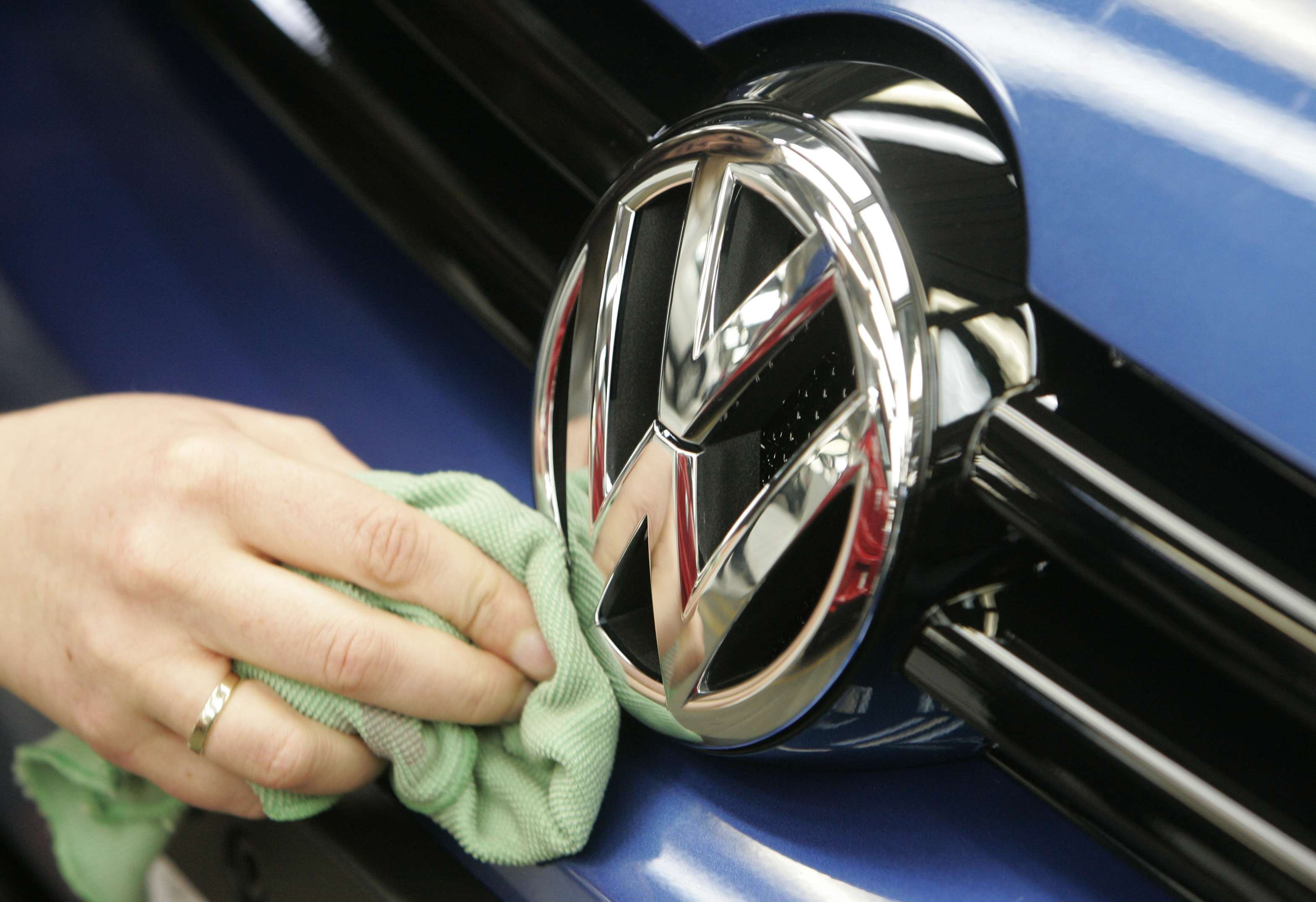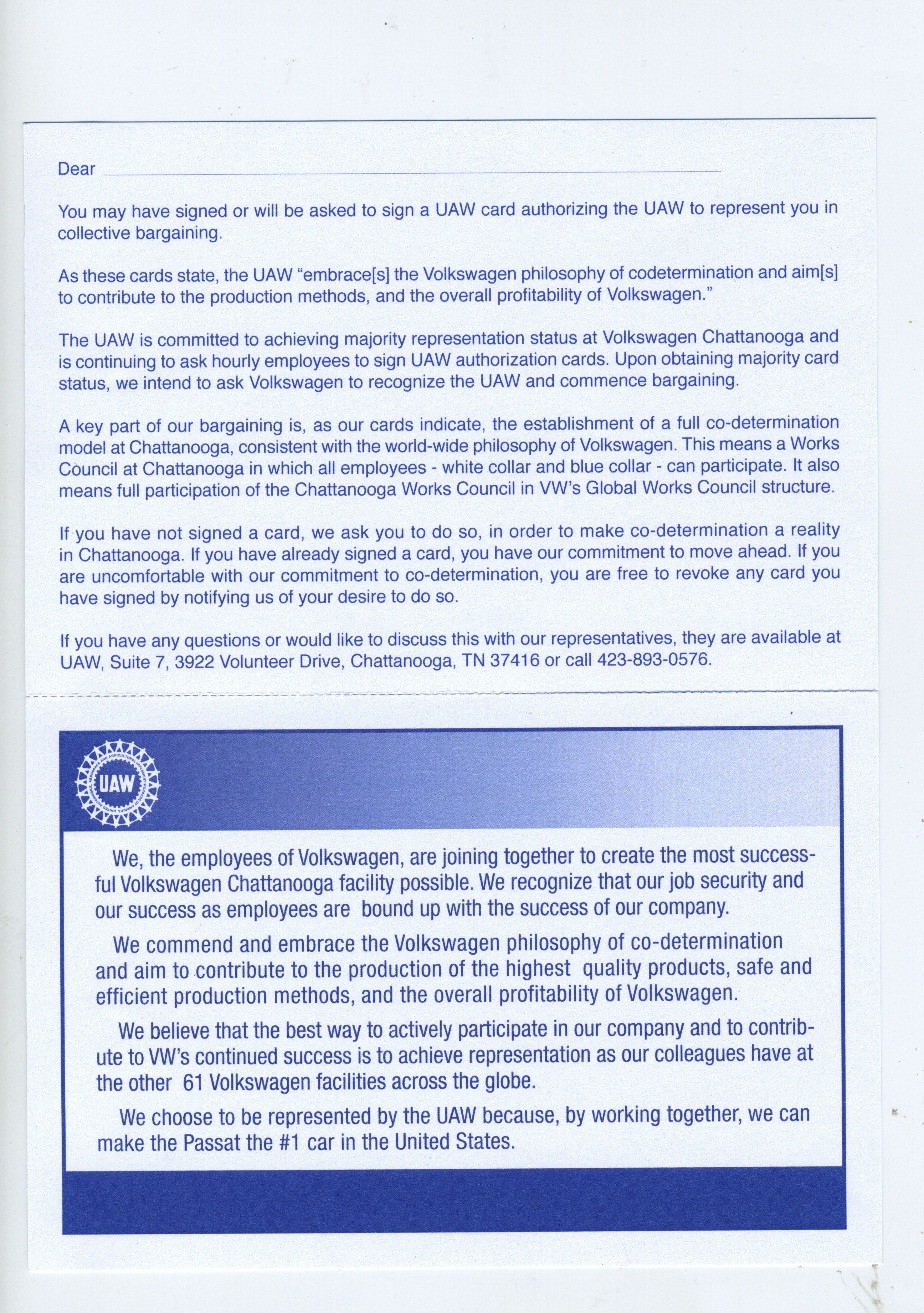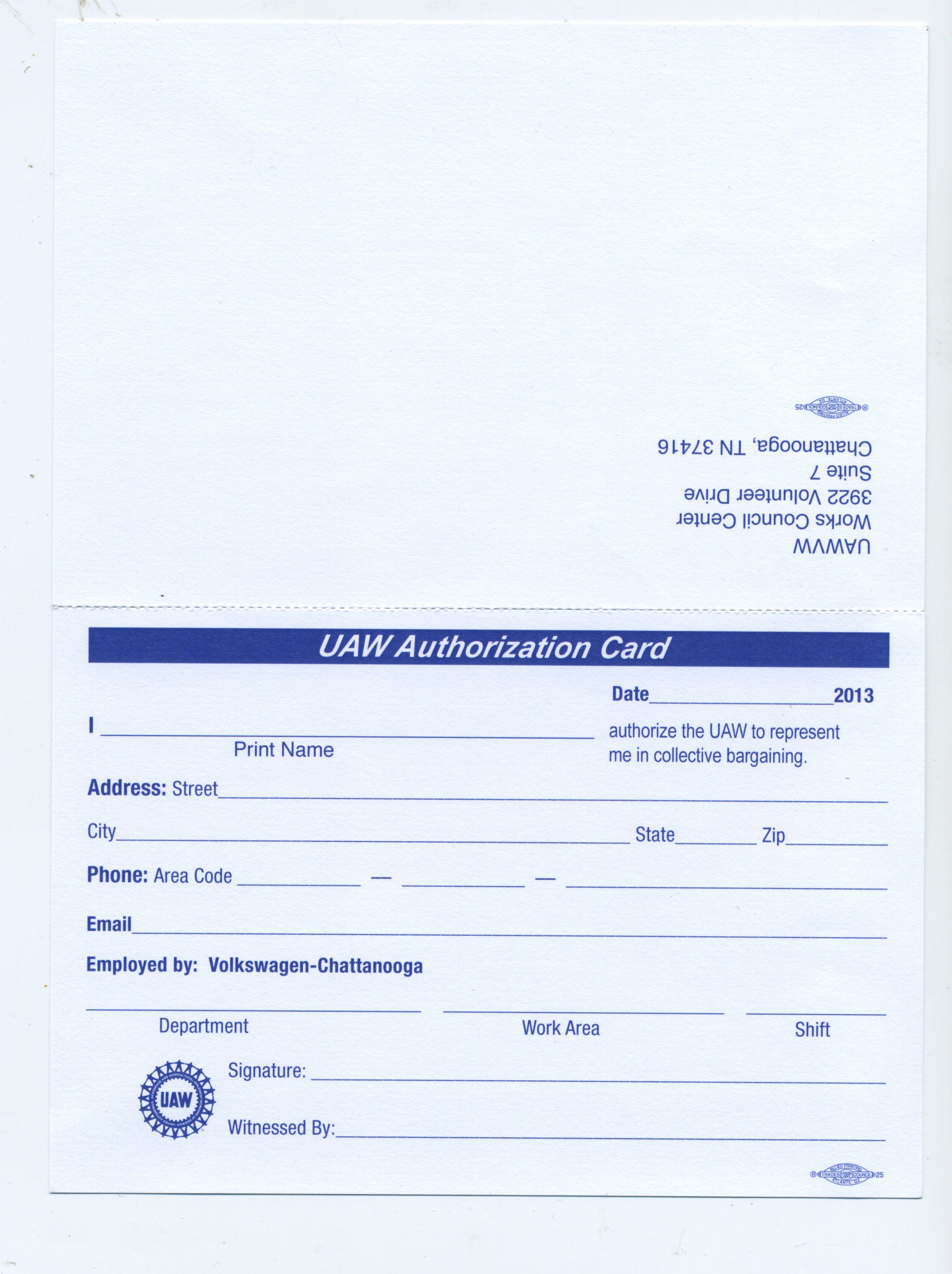VIDEO
This story is featured in today's TimesFreePress newscast.
Read moreHow far did Haslam go against UAW? lawmaker asks
A onetime powerhouse Detroit union struggling to gain a foothold in the South's auto industry could be representing Chattanooga's Volkswagen employees by the end of the year.
After months of organizing efforts, the United Auto Workers claimed Wednesday that a majority of the plant's employees have signed cards requesting union representation and a works council, the German-style labor board common in VW's plants worldwide.
"We're interested in bringing a new labor model to the U.S.," said Gary Casteel, a UAW regional director.
The timing all comes down to when the UAW and the German automaker decide to move ahead.
Opponents of the organizing effort called for a secret-ballot election for about 2,500 employees at the plant. One noted that workers at an Alabama automotive factory, where the union had a majority of employees sign cards, last month voted down the UAW in an election.
"One of the principles of our country is that in important matters people have the privacy of a secret ballot to vote their conscience," said Ron Harr, chief executive for the Chattanooga Area Chamber of Commerce.
Labor experts said there are a couple of options open to the company.
John Raudabaugh, a former member of the National Labor Relations Board, said if VW is presented with the card-check results and "touches or looks" at them, that will bind the company to accept the union.
Or, he said, the company could call for the secret-ballot election. That must be held within about 40 days from the time a petition is filed with the NLRB, Raudabaugh said. But, he added, the parties could agree to an expedited election, such as just two weeks.
VW officials on Wednesday declined comment on the matter. In the past, the company has said it will leave the decision to its employees.
The UAW indicated it doesn't have a timeline yet to move forward.
Ed Hunter, a Chattanooga VW employee who supports the union, said he believes the employees already made a decision when they signed the authorization cards.
"Our contention is the vote has already been made," he said.
But, Matt Patterson, senior fellow for the Center for Economic Freedom at the Washington, D.C.-based Competitive Enterprise Institute, said he's skeptical the UAW even has a majority of cards. Even if it does, he thinks an election is called for.
"I hope the whole process is above board and open as possible," he said. "For everyone to feel comfortable ... they'd have to have an election."
Lowell Turner, a Cornell University professor of international and comparative labor, said VW is "caught in a pinch."
He said there are top people at the company's headquarters in Germany who support the works council concept and want the Chattanooga plant to be a part of that global network.
However, the UAW has drawn fire from conservative Tennessee politicians and business groups, Turner said. Tennessee Gov. Bill Haslam and U.S. Sen. Bob Corker, for example, have voiced strong concerns the UAW would hurt the plant and business recruitment to the state.
"It's a little tricky for the company," Turner said. "I think there's internal discussion within the company. They'd like to recognize the union but don't want to antagonize senators, congressmen and local business. It will be interesting to see how that discussion plays out."
Harr said that if the UAW organizes the Volkswagen plant, it will damage the city's chance to attract new companies and create jobs.
"We're working to recruit a number of auto suppliers that tell us they won't locate within 100 miles of the UAW," he said. "We would hate to see the incredible success story Volkswagen and its local employees have built in partnership with Chattanooga move in the wrong direction."
Harr said he doesn't understand what value the UAW offers the workers or the community. Opponents have said that a union will hurt productivity at the plant and drive up costs.
"Volkswagen is already paying excellent wages and providing great working conditions," Harr said. "Other companies have found ways for their employees to have a voice without obligating them to pay union dues. If the vote goes against the UAW, we look forward to working with Volkswagen and its employees in establishing a new and modern solution for having a works council that doesn't involve a third party."
Hunter, the VW employee, said he likes the works council-UAW approach and the idea the Chattanooga plant will be part of a worldwide network.
"It has a wonderful history," he said. Hunter also said that a works council can create better harmony between employees and the company. "It's better employee-management relations."
Raudabaugh, an NLRB member from 1990 to 1993 who is now a labor law professor at Ave Maria School of Law in Naples, Fla., has said the company can "reach a win-win outcome without having to pay a third party" such as the UAW.
He said he believes the UAW is "desperately seeking some new image, some new approach to selling themselves. At the end of the day ... a labor union is a labor union is a labor union."
Company officials have said that all of its major plants worldwide operate with a works council, a labor board that talks with management about issues such as hours, training and safety. A union, which VW says is required under U.S. law if a works council is set up, bargains over employee pay and benefits with the company.
The Associated Press contributed to this story.
Contact Mike Pare at mpare@timesfreepress.com or 423-757-6318.



